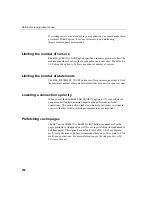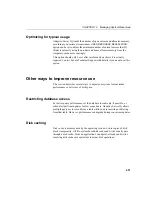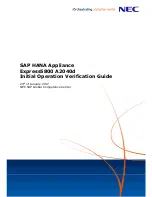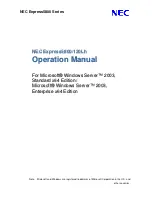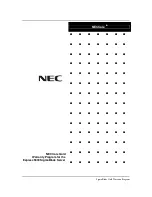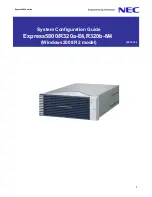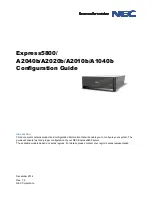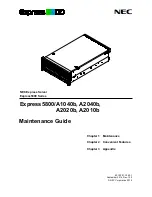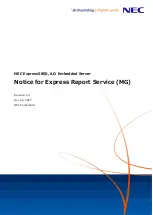
CHAPTER 12 Managing System Resources
447
Figure 12-4: Avoid I/O contention
The figure above illustrates how you want to spread access across separate
disks to avoid I/O contention.
To avoid disk bottlenecks, follow these suggestions:
•
Keep random disk I/O away from sequential disk I/O.
•
Isolate IQ database I/O from I/O for proxy tables in other databases, such
as Adaptive Server Enterprise.
•
Place the transaction log and message log on separate disks from the IQ
Store, Catalog Store, and Temporary Store, and from any proxy databases
such Adaptive Server Enterprise.
Working space for inserting, deleting, and synchronizing
When you insert or delete data, and when you synchronize join indexes,
Adaptive Server IQ needs some working space in the IQ Store. This space is
reclaimed for other purposes when the transaction that needs it commits.
Summary of Contents for Adaptive Server IQ 12.4.2
Page 1: ...Administration and Performance Guide Adaptive Server IQ 12 4 2 ...
Page 16: ...xvi ...
Page 20: ...Related documents xx ...
Page 40: ...Compatibility with earlier versions 20 ...
Page 118: ...Troubleshooting startup shutdown and connections 98 ...
Page 248: ...Importing data by replication 228 ...
Page 306: ...Integrity rules in the system tables 286 ...
Page 334: ...Cursors in transactions 314 ...
Page 396: ...Users and permissions in the system tables 376 ...
Page 438: ...Determining your data backup and recovery strategy 418 ...
Page 484: ...Network performance 464 ...
Page 500: ...System utilities to monitor CPU use 480 ...
Page 514: ...Characteristics of Open Client and jConnect connections 494 ...
Page 536: ...Index 516 ...


















